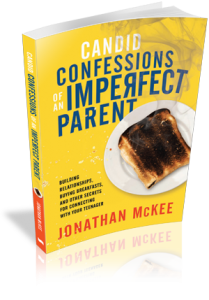 My 3-year-old niece and 6-year-old nephew just discovered Google.
My 3-year-old niece and 6-year-old nephew just discovered Google.
It’s funny how technology so rapidly changes the world our kids grow up in. When my kids (14, 16, and 18) were young… Google was unknown! Mid-90’s web searches were AOL, Yahoo, or Web Crawler. (Remember those? I used Alta Vista.)
The 90’s computer gaming experience was much different as well. Young kids didn’t play as many online games; they played CD-roms. I remember a rack of kids CD’s by our computer: Jumpstart Toddler, LarryBoy, and Disney Princesses.
No need for that now. Everything a kid needs is online.
I was talking with my brother Thom last week and he told me, “I just taught Aidan (6-years-old) to Google!”
“Seriously?” I asked, “What does he Google?”
Thom sighed. “He doesn’t get it yet. He searches using the logic of a 6-year-old. The other day he typed: the red guy in Captain America.”
I laughed.
“Or yesterday, he Googled a car that a kid can drive. He actually found one!” Tom chuckled. “It was like $1,000 bucks. Aidan asked me, ‘How many books would I have to read to earn that?’”
Thom and his wife Amy have spent a lot of evenings snickering while watching the kids play on the computer.
Thom and Amy have a designated computer the kids can use, complete with every cyber block known to mankind to keep out unwanted content. But they still monitor the kids browsing. I would to. It sounds pretty entertaining!
The other day Aidan’s little sister Elise (age 3) was giving Aidan suggestions of things to search for. “Look up hair dryers for kids!”
Aidan found quite a few.
Elise liked Aidan’s search for the red guy in Captain America, so she suggested her own query. “Look for Captain A-girl-ica.” (3-year-old reasoning)
Thom also taught Aidan to use the phone in the last few weeks. “He calls me every 5 minutes now!”
Thom is a pastor in a small town. He’ll now be in meetings at the church and his phone goes off. Caller ID: HOME.
“Hello?”
“Uh… dad? Uh… how do you spell rhinoceros masks?”
I guess that’s what Thom gets for teaching his kid technology. 🙂 Wait till Aidan discovers iTunes and YouTube. (Have you ever taken a quick tour of the Top 10 songs and videos at just a click away?)
It’s fun for me to see the innocence and creativity of my little niece and nephew and how they are interacting with technology.
So what about those of you with young kids? What guidelines do you set for that age?
Posted in Entertainment Media, Humor, Internet, Parenting, Youth Culture | | Leave A Comment



 Follow
Follow



